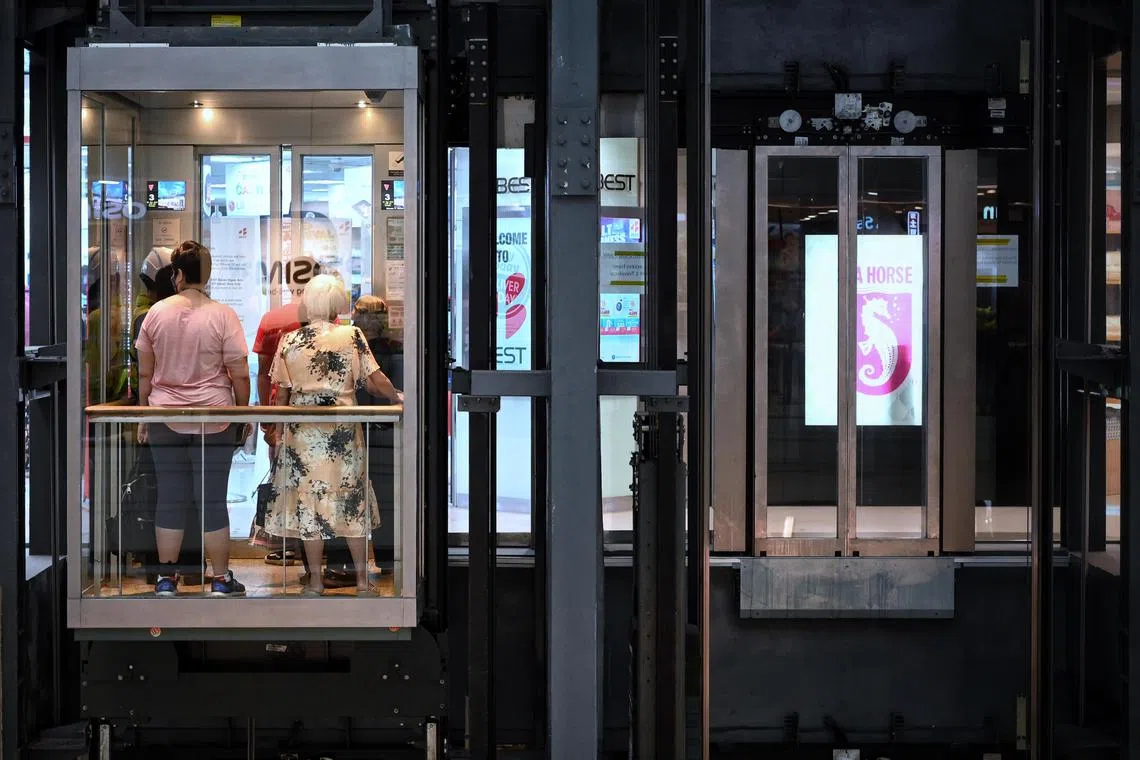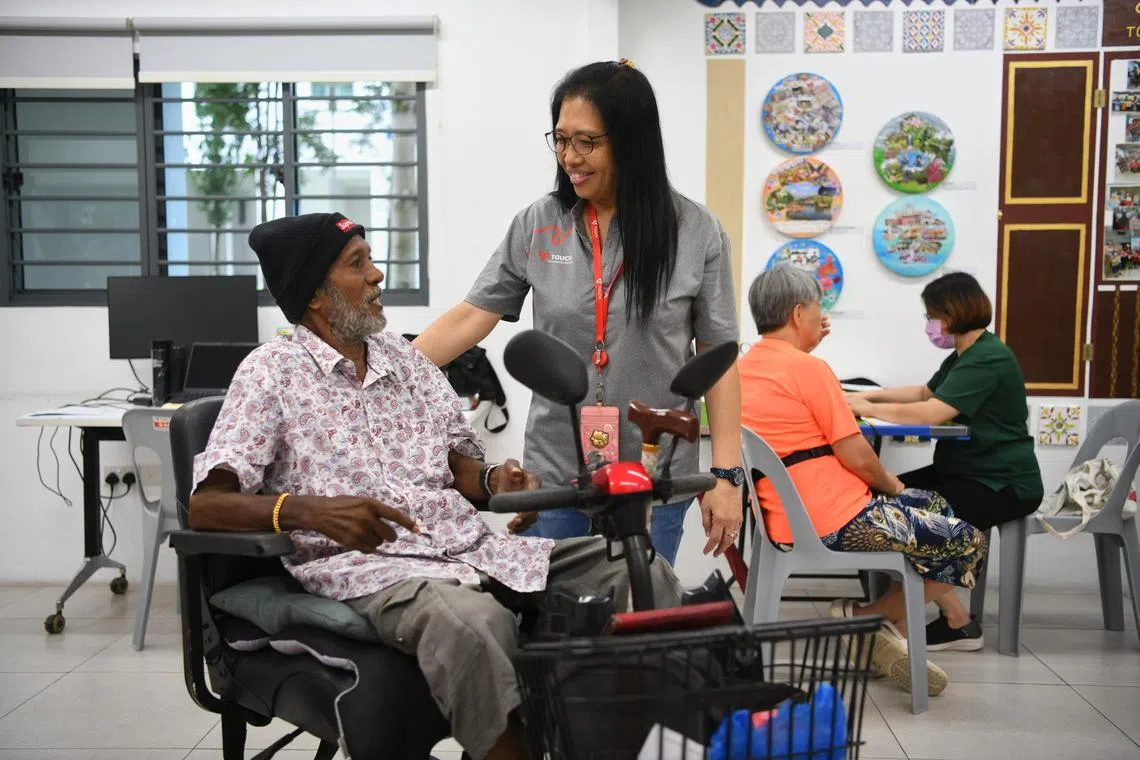Living alone a risk factor for social isolation, especially for men: NUS study
Sign up now: Get ST's newsletters delivered to your inbox

The research found that among those living alone, men were about twice more likely to be disconnected than women.
ST PHOTO: KUA CHEE SIONG
Follow topic:
SINGAPORE - Retired cleaner Wang Jee Kim lives alone in a two-room rental flat in Marine Parade.
The 69-year-old bachelor spends his days watching television, walking around the neighbourhood and talking to his few friends at the void deck or community garden.
About two years ago, he was befriended by the staff at the nearby Montfort Care GoodLife! centre, where he spends about 30 minutes on weekdays having his blood pressure checked and reading newspapers.
“I prefer to lead a quiet life and don’t like to go to noisy places or join rowdy activities,” said Mr Wang, who has hypertension and feels breathless easily.
Mr Abdul Aziz Abdul Rayman, 65, joined TOUCHPoint @ Yishun 436, under Touch Community Services, in June 2022.
The former drug addict, who is divorced, has been in and out of prison many times.
He was released from prison in 2022, and lives with his brother in a one-room flat in Yishun. However, they are not on good terms, and he feels as if he is living alone.
The unemployed man also suffers from hypertension and diabetes.
“I was able to press on despite my financial problems and strained relationship with my brother, with the support of the Touch team,” he said. “I also participate in the centre’s events occasionally, depending on my health condition.”

Mr Abdul Aziz Bin Abdul Rayman (left) joined TOUCHPoint @ Yishun 436, under Touch Community Services in June 2022.
ST PHOTO: SHINTARO TAY
Living alone is a risk factor for social disconnection, according to a recent National University of Singapore (NUS) study.
The research, involving 17,107 community dwelling older Singaporean adults aged 61 to 96 years, found that among those living alone, men were about twice more likely to be disconnected than women.
Social disconnection is a term used to describe the lack of social, emotional and physical engagement with other people.
“Given their traditional role as wage earners, men have smaller social networks and report less social interactions than women,” the study said.
“In addition, transitioning from employment to retirement could further curtail their social network and increase their social disconnection.”
The study also found that lower education levels, cognitive impairment, poor health and depression were among some factors associated with social disconnection, even if the individuals lived with their family.
While individuals with higher education levels have more exposure to diverse social networks and are more likely to retain more social connections, those with poor health have less social engagement and support, the study said.
Those who lived with family could also have high expectations of support from their household members, which could in turn lead to feelings of social disconnection when the expected support is not available.
The study recommends focusing community interventions on men who live alone, as well as older adults in poor health living with family.
This could mean improving the quality of interactions with their family, and involving extended members of the community for regular social interactions.
Associate Professor Feng Qiushi of the Department of Sociology and Anthropology at NUS, who led the study together with Professor Koh Woon Puay of the NUS Yong Loo Lin School of Medicine, told The Straits Times that living alone is a risk factor for social isolation, especially for men.
“However, people who are living together with family may also develop social disconnection, especially those who are unhealthy and uneducated,” he said.
“How to better organise social support is a key factor for the life quality of older adults.”
While Mr Wang and Mr Abdul Aziz have found social support in the community, Mr Anthony Tay, chairman of Lions Befrienders, said there are seniors who make a conscious choice to isolate themselves socially, as they prefer to age alone.
Those who have a lower level of education may also have less awareness of their health issues, and are socially disconnected due to the lack of ability to articulate their psycho-social or health needs, he said.
Lions Befrienders regularly conducts outreach to seniors, inviting them to its active ageing centres to participate in a wide range of activities and expand their social network.
To incentivise seniors, it will invite them to events where food and gifts are provided, health screenings, as well as awareness sessions on physical and mental wellness or community resources that can meet their needs, Mr Tay said.
Those who prefer to stay away from crowds will be given befriending and buddy services on a personal level through home visits or phone calls.
The seniors are also taught digital skills such as using a smartphone to keep them digitally connected.
“Gaining the trust of our seniors is the first step towards ensuring that they are socially connected, and this is something that takes place over time through showing the seniors respect and love,” he said.
A spokesman for Touch Community Services said that through its Seniors Caring for Seniors programme, it engages seniors who are doing well to befriend and provide support to at-risk seniors through weekly home visits.
“We have found that being active and productive often serves as a form of motivation for seniors, while allowing them to make valuable contributions to their communities,” said the spokesman.

